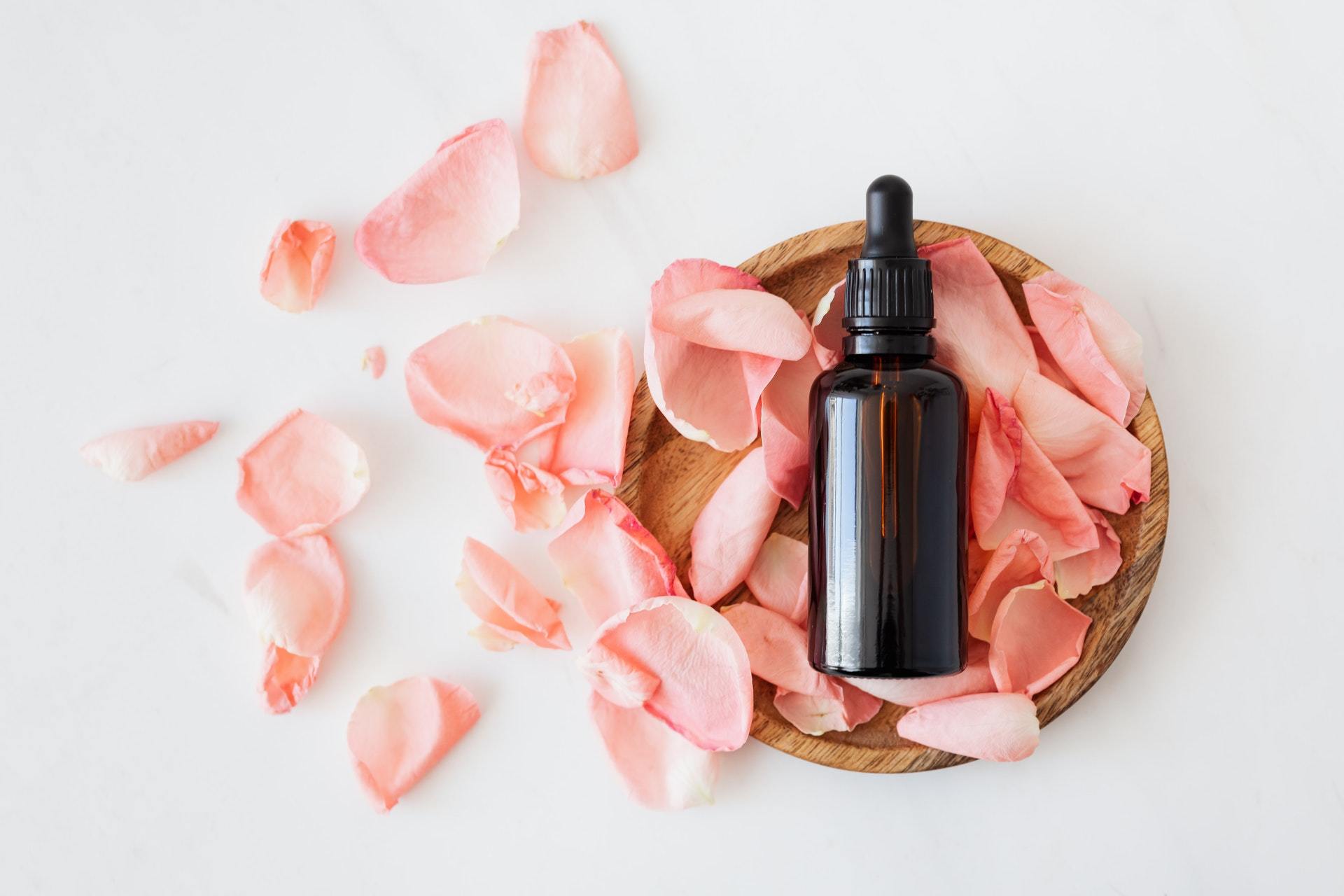Why Does My Ear Feel Clogged?: Symptoms, Best Home Remedies for Clogged ear

If your clogged or blocked ear doesn't go away by itself, try these simple methods suggested in this article first. The article provides information on which part of the ear may be causing the issue, the symptoms, effective home remedies, and when it's crucial to seek medical attention.
So, if you're experiencing discomfort due to a clogged ear, it's recommended to read this article all the way to the end.
Having clogged ears can be a very unpleasant experience, but did you know there are a few ways you can help ease your symptoms without even leaving the house? Let’s take a look at a clogged ear remedy or two and get you back on your feet!
How Do I Know if I Have a Clogged Ear? : Symptoms of Clogged ear
The first thing you are likely to experience if you have a clogged ear is some sort of discomfort, pain, a pressured ‘bunged up’ or blocked sensation, or just the feeling that something is wrong with your ear.
Symptoms can also include:
- Earache
- Hearing loss
- Itchiness in or around the ear
- Tinnitus (ringing in the ears)
- Vertigo (a spinning feeling)
Why do my ears feel clogged? : Causes of Clogged ear
These are many reasons for a clogged ear, which we cover in depth over on our Why Does My Ear Feel Clogged? Causes and Treatment.
- Eustachian Tube Dysfunction: The Eustachian tube connects the middle ear to the back of the nose, maintaining balanced air pressure in the ear. It can get blocked due to conditions like colds, allergies, or other nasal issues.
- Cerumen Impaction (Earwax Buildup): When earwax accumulates in the ear canal, it can block the ear. This can occur due to improper ear cleaning or ear damage.
- Cold or Influenza (Flu): Swelling of the tissues around the nose and nasal passages during a cold or flu can lead to a blocked ear.
- Allergies: Swelling caused by allergic reactions can also lead to a blocked ear.
- Otitis Media (Middle Ear Infection): Infections or inflammation related to the ear can cause the ear to become blocked. This may be associated with conditions like otitis media or external ear infections.
- Barotrauma: Sudden pressure changes, such as during air travel or at high altitudes, can create pressure in the ear and cause it to become blocked.
- Foreign Object in the Ear: Objects lodged in the ear canal can block the ear, more commonly occurring in children or individuals with ear damage.
- Impacted Earwax: Earwax that remains hard and does not soften can lead to a blocked ear.
- Ear Injury: Injuries to the ear, such as cuts or bruises, can result in a blocked ear.
However, Common causes for Clogged ear/Blocked ear include allergies, a cold or the flu, and earwax build-up.
Regardless, if your symptoms persevere for more than ten days, it is important to see a doctor to rule out any underlying conditions, diseases, or infections. If you have hearing loss that develops suddenly, see a doctor as soon as possible.
Before you set about trying to unclog your ears, it’s incredibly useful to determine if your problem concerns the middle ear, behind the eardrum, or the outer ear. This is because different remedies work for different problems and areas of concern.
How to distinguish the middle ear and outer ear?
- Outer Ear:
Components: The outer ear consists of the pinna (visible part of the ear) and the ear canal (auditory canal).
Function: The pinna collects sound waves from the environment and directs them into the ear canal.
Characteristics: The outer ear is the part of the ear that you can see. It includes the external structures responsible for capturing and funneling sound.
- Middle Ear:
Components: The middle ear includes the eardrum (tympanic membrane) and a space containing three small bones called the ossicles (malleus, incus, and stapes). The middle ear is connected to the nasopharynx by the Eustachian tube.
Function: The eardrum vibrates in response to sound waves and transmits these vibrations to the ossicles. The ossicles amplify the vibrations and transmit them to the inner ear.
Characteristics: The middle ear is an air-filled space located between the eardrum and the oval window of the inner ear.
To distinguish between the middle ear and outer ear, you can consider the following points:
Location: The outer ear is the part you can see, including the pinna and ear canal. The middle ear is deeper and situated behind the eardrum.
Structures: The middle ear involves the eardrum and the ossicles, while the outer ear comprises the pinna and the ear canal.
Function: The outer ear is primarily responsible for collecting sound, while the middle ear is involved in transmitting and amplifying sound vibrations.>
Home Remedies for a Clogged Middle Ear
Valsalva Maneuver

If the Valsalva maneuver doesn’t sound familiar, ‘popping your ears’ probably does – they mean the same thing. This clogged ear remedy is one you’ve most likely done many times, consciously or unconsciously.
If you experience fullness or pressure in your ears and potentially also ear pain, dizziness, and muffled hearing, your eustachian tubes, running between your middle ear and the back of your nose, might be obstructed. Doing the Valsalva maneuver helps to open these obstructed eustachian tubes.
You can do this easily yourself by plugging your nose (squeezing it with your fingers) and then blowing out while keeping your lips closed (puffing out your cheeks). Blow firmly but not too hard, as this can cause problems with your eardrum. If it doesn’t help you can try again, adjusting your technique slightly each time. You’ll know if it has worked because you’ll hear a ‘popping’ noise.
Swallowing, yawning, and chewing gum can also help to open your eustachian tubes in a similar way. Try these if you’re having no luck with the Valsalva maneuver.
Do keep in mind, however, that this will not correct conditions of excess fluid in the inner ear.
Nasal Spray or Oral Decongestants
Although they are more useful as a preventative treatment when you’re flying or if you have nasal or sinus congestion, nasal spray and oral decongestants can help to reduce your ‘clogged up’ sensations.
You might already have these in your medicine cupboard. If not, they are available Over-the-Counter (OTC) from your local drug store or pharmacy.
Try turning your head in various directions
Lie down and experiment with different positions. If your ear is blocked due to fluid, efforts to disperse the obstructing liquid may be necessary.
There isn't a one-size-fits-all position to resolve your clogged ear, but in many cases, lying on your side, slightly tilting your head upward, and holding the position for about 30 seconds while looking at your own heel has often proven to be effective.
Home Remedies for a Clogged Outer Ear
Homemade Ear Drops
You might find that dripping mineral, olive, or baby oil into your clogged ear helps you relieve your symptoms.
All you have to do is take two to three tablespoons of your oil of choice warmed up. Be careful it isn’t too hot! Check the temperature and whether it causes irritation by testing it carefully on your skin.
Using an eyedropper drip one to two drops into your problem ear. Remember to keep your head tilted for 10 to 15 seconds to ensure it goes down. The blockage might not get better immediately, so you can do this a few times a day for up to five days until it clears.
Ear Irrigation
If you’ve softened the earwax blockage, a simple home-performed ear irrigation can help to flush it out.
Be warned, however; don’t do this if you have an active infection in your ear canal. This clogged ear remedy also carries the risk of causing an ear infection or a perforated eardrum.
Sickness or Allergies Clogged Ear Remedy
Essential Oils
If your clogged ears are due to sickness or allergies, mineral and essential oils might be helpful as they can have antibiotic, antiseptic, and anti-inflammatory properties.
Tea tree oil, eucalyptus oil, and peppermint oil can all be inhaled as steam or placed near the nose so you can easily breathe in the vapors. Research how each oil should be used before trying this as they are still dangerous if used incorrectly.
Warm Compress or Shower

You can try placing a warm compress over your ear or take a steamy shower to open up your nasal passages and drain your ears of mucus.
Inhale hot steam
Fill a wide bowl with hot water, bend your head over it, and inhale the steam from about 50cm away through your nose and mouth.
Since our ears are connected to the nose and mouth, changes in humidity in these areas can lead to different conditions, potentially unclogging the ear.
You can also cover your head with a towel during this process to direct the steam more directly.
However, be cautious not to get too close to the hot water. Even if you don't touch the water, hot steam can pose a serious threat to our delicate eyes.
Gargle Salt Water
Gargling salt water can also help to reduce mucus in your ears and nose.
Simply add a little salt to some water and mix until dissolved. Gargle the mixture for a few seconds and then spit it out.
When to See a Doctor
Despite there being many excellent home remedies for clogged ears, you should be prepared to see a medical professional if things don’t get better.
Some causes such as sinus infections and middle ear infections can be treated with prescriptions, which will probably be quicker and more effective than trying home remedies for days on end.
Obviously, it’s very difficult to tell what’s causing your symptoms yourself, but noting your symptoms can help here.
The following symptoms indicate that you should see your doctor:
- Hearing loss
- Ear pain
- Dizziness
- Discharge
- Tinnitus (ringing in the ears)
- Fever
- Blockage refusing to clear on its own
- Blockage can’t be unclogged
These don’t necessarily mean that something serious is going on, but they do suggest you could benefit from a once over from your physician.
The information in this guide has been written using the following reliable sources:
https://www.medicalnewstoday.com, https://www.healthline.com, https://www.medicalnewstoday.com, https://www.nhsinform.scot
The post The Best Clogged Ear Remedies For Instant Relief appeared first on Olive Union.





 Everyone has had or dealt with dry skin at some point in their lives. It can be caused by the environment, allergens, lifestyle decisions, and many other varying factors and can be quite a nuisance to deal with, even painful. Similarly, the same can be said for dry ears. Similar to how skin produces oil […]
Everyone has had or dealt with dry skin at some point in their lives. It can be caused by the environment, allergens, lifestyle decisions, and many other varying factors and can be quite a nuisance to deal with, even painful. Similarly, the same can be said for dry ears. Similar to how skin produces oil […] Web designer is a particularly accessible job for the hearing impaired as well, because most of the communication involved tends to be digital. Salary...
Web designer is a particularly accessible job for the hearing impaired as well, because most of the communication involved tends to be digital. Salary...
